Ever wonder how someone goes from sleeping on a living room floor in India to running a $2 trillion company? Sundar Pichai's story isn't your typical rags-to-riches tale—it's better. The CEO of Google Inc didn't just climb the corporate ladder; he practically rewrote the rules on how to get to the top. With a net worth hitting $1.3 billion and monthly earnings that could buy a mansion, Pichai's journey shows what happens when raw talent meets relentless drive.
The story of the CEO of Google Inc is one that captures the imagination of anyone dreaming big. Sundar Pichai serves as the chief executive officer of Alphabet Inc. and its subsidiary Google, having started his professional journey as a materials engineer. His path from a cramped two-room apartment in Chennai to commanding a tech empire shows what's possible when you mix talent with perfect timing and serious perseverance.
As of early 2025, Alphabet is valued at $2.35 trillion, and the man steering this massive ship has piled up serious wealth along the way. Pichai's total net worth stands at $1.31 billion, but this number only scratches the surface. His compensation package has seen wild swings—peaking at $226 million in 2022, then dropping to $8.8 million in 2023 (including his $2 million base salary). Talk about a rollercoaster.
CEO of Google Inc Early Career: The Foundation Years
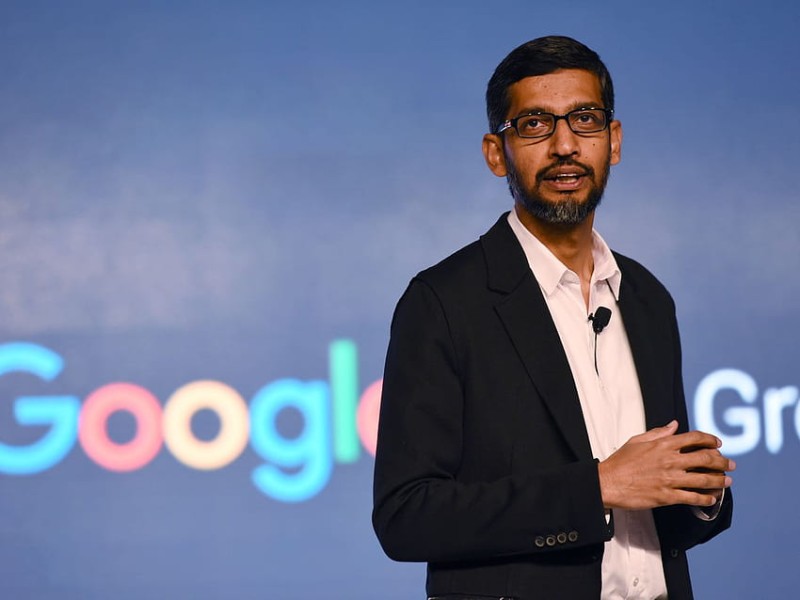
Before becoming the CEO of Google Inc, Pichai's path was anything but straightforward. Born in Madras (now Chennai), he earned a bachelor's degree in metallurgy in 1993 and snagged a silver medal at the Indian Institute of Technology Kharagpur. His family wasn't rolling in money—his dad worked as an electrical engineer and saved for three years just to buy their first scooter. That's the kind of background that either breaks you or builds character. For Pichai, it was definitely the latter.
After his engineering degree, Pichai scored a scholarship to Stanford University, where he earned a master's in engineering and materials science in 1995. He stuck around in the United States, working briefly at Applied Materials, a semiconductor supplier. Then came business school at Wharton, where he earned his M.B.A. in 2002, followed by a short stint at McKinsey & Company before joining Google in 2004.
His first real money came from McKinsey, where management consultants typically pull in solid six-figure salaries straight out of business school. But the big payday would come from Google, where he started as a product manager working on the Google Toolbar. Pichai interviewed at the Googleplex on April Fools' Day in 2004—the same day the company launched Gmail. He actually thought the free email service was one of Google's famous pranks. Imagine that job interview.
How the CEO of Google Inc Built His Career Empire
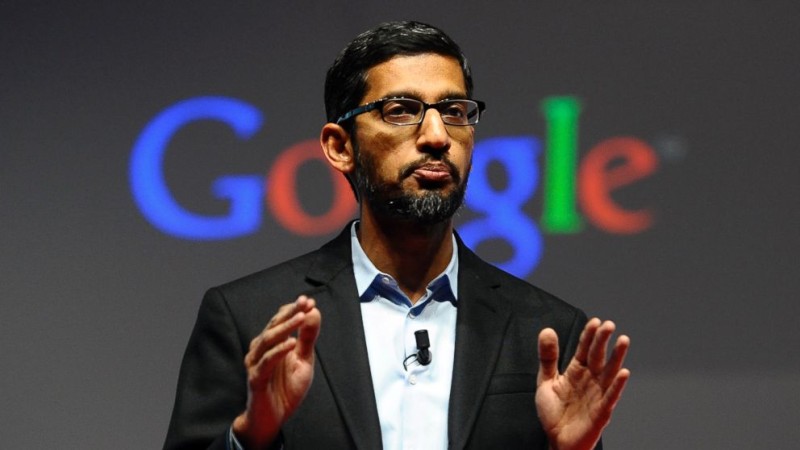
Pichai's rise through Google's ranks was nothing short of meteoric. In the 11 years after joining, he got promoted four times before landing the CEO spot in 2015. His early win was convincing Google's cofounders that the company needed its own web browser, which led to Chrome—now the world's dominant browser.
He led product management and innovation for Google's client software products, including Chrome, ChromeOS, and Google Drive. Then he took over Gmail and Google Maps, essentially controlling the products that defined Google's dominance. By March 2013, Pichai added Android to his portfolio, expanding his empire within the company even further.
By this point, his compensation was growing substantially. In 2011, Twitter came calling. In 2014, Microsoft wanted him as CEO. Both times, Google threw huge financial packages at him to stay. The company knew what they had—a guy who could actually get stuff done without burning the place down.
CEO of Google Inc Reaches the Peak
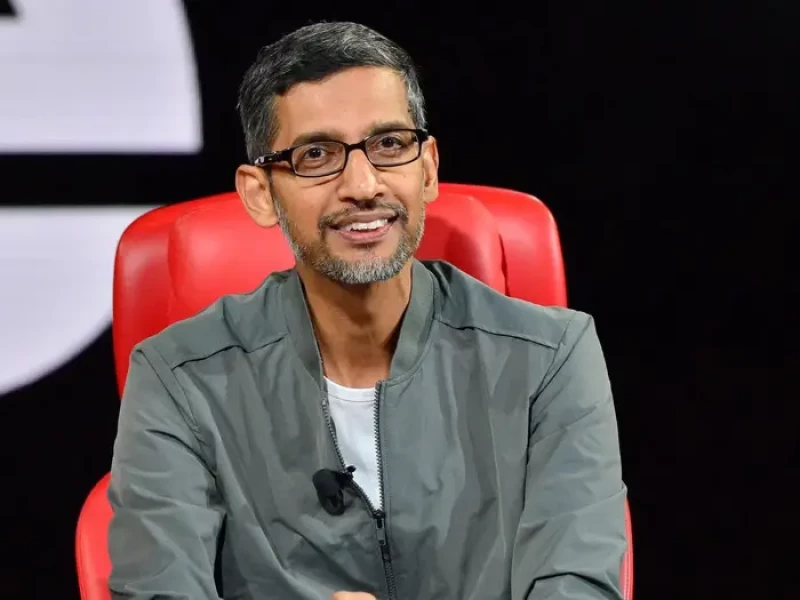
Pichai was tapped to become the next CEO of Google on August 10, 2015, after being appointed chief product officer by Larry Page. The timing couldn't have been better. When Google's cofounders announced the creation of Alphabet Inc. in August 2015, Pichai was named CEO of Google as it got reorganized as a subsidiary.
Then in December 2019, Pichai became CEO of Alphabet Inc., taking over from Larry Page who stepped down. This promotion put him in charge of not just Google, but the entire Alphabet empire including Waymo, Verily, and all those "moonshot" projects that either change the world or burn cash—sometimes both.
His compensation reflected his value to the company. In 2022, he pulled in one of the largest payouts of his career—$226 million total, including salary and stock awards. He owns about 88,693 Alphabet shares, representing roughly 0.02% of the company. Not a huge percentage, but when you're talking about a $2 trillion company, the math works out nicely.
The CEO of Google Inc lifestyle reflects his success but stays relatively modest compared to other tech billionaires. He owns a beautiful mansion in Los Altos Hills, California, which set him back $40 million and spreads over 4,000 square feet. He's also got another property under construction with all the bells and whistles—swimming pool, wine cellar, the works.
CEO of Google Inc Current Wealth and Earnings
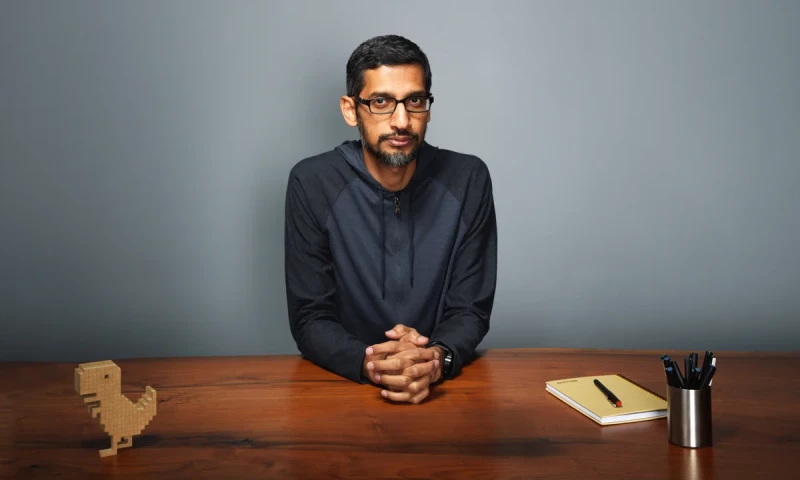
Today, Pichai's earning power is absolutely staggering. As of 2025, his monthly compensation (including salary, bonuses, and stock grants) averages around $15–20 million per month, though this bounces around based on Alphabet's stock performance. His annual package hits $242 million+, which comes as a $2 million base salary plus massive stock awards.
His wealth isn't just sitting in a bank account collecting dust either. Pichai's fortune comes primarily from Alphabet stock, and he regularly sells shares to diversify. This gives him the cash flow to spread his investments around while keeping control of his stake in the company. Smart money management for a guy who clearly knows how to play the long game.
Success Principles from the CEO of Google Inc
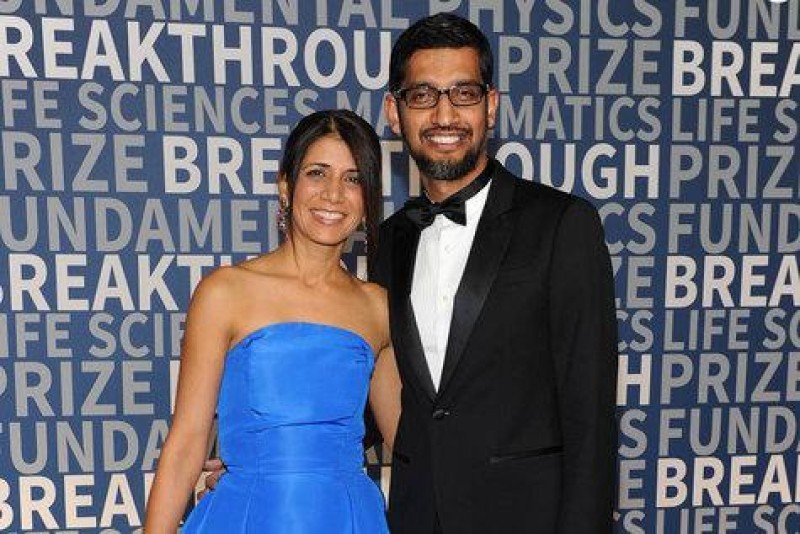
What separates successful people from everyone else grinding away? The CEO of Google Inc has dropped several key principles that guided his rise to the top, and they're worth paying attention to.
First up: never stop learning. Pichai pushes hard on continuous self-improvement, telling people to embrace challenges, learn from failures, and keep pushing even when things get rough. His growth mindset philosophy centers on the idea that everyone has potential for development. He even told students at his alma mater that he worked hard but had plenty of fun too—sometimes sleeping through lectures and earning a C in at least one course. The point? Perfection isn't the goal; progress is.
His product philosophy is dead simple but powerful: "Focus on the user, and all else will follow." This user-centric approach has been his North Star throughout his Google tenure, making sure products aren't just technologically impressive but actually useful to real people. Too many companies build cool tech that nobody needs. Pichai built tech that billions use daily.
Another crucial piece of advice: don't overthink things and don't let setbacks wreck your momentum. He tells people, "It's a long road, setbacks actually don't matter." This resilience proved crucial throughout his career, especially when facing down competition from Microsoft, dealing with regulatory pressure, and navigating internal Google politics.
Pichai is famous for building, nurturing, and mentoring killer teams. His people policies center on meritocracy—making sure talented people get recognized and rewarded. He goes the extra mile to ensure his team's efforts don't go unnoticed. His philosophy? Leaders should put their team first and celebrate group wins over individual glory.
He's also big on taking risks. Pichai emphasizes acknowledging your failures and taking calculated risks until you succeed. He believes you've got to follow your dreams and do work that actually excites you. This risk-taking mindset reflects his understanding that real leadership means going into uncharted territory, not just managing what already exists.
One of his core principles is staying calm under pressure. Even in high-stakes situations, Pichai maintains composure, believing this creates psychological safety—an environment where creativity thrives and teams feel confident tackling big challenges. When everyone else is panicking, the leader who stays steady wins.
Finally, Pichai's approach to innovation is "think big but start small." He encourages teams to have massive, ambitious goals but begin with manageable projects. This lets you experiment, iterate, learn fast, and make adjustments before scaling up. It's the opposite of betting everything on one big launch and praying it works.
The journey of the CEO of Google Inc proves that success isn't about where you start—it's about the principles you follow, the teams you build, and the risks you're willing to take along the way. From a two-room apartment in Chennai to running one of the world's most powerful companies, Pichai's story shows that the combination of technical excellence, people skills, and strategic thinking can take you anywhere.
 Sergey Diakov
Sergey Diakov
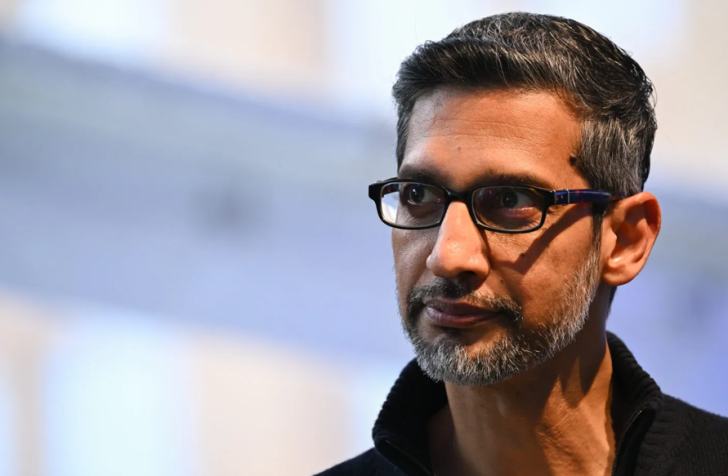
 Sergey Diakov
Sergey Diakov


